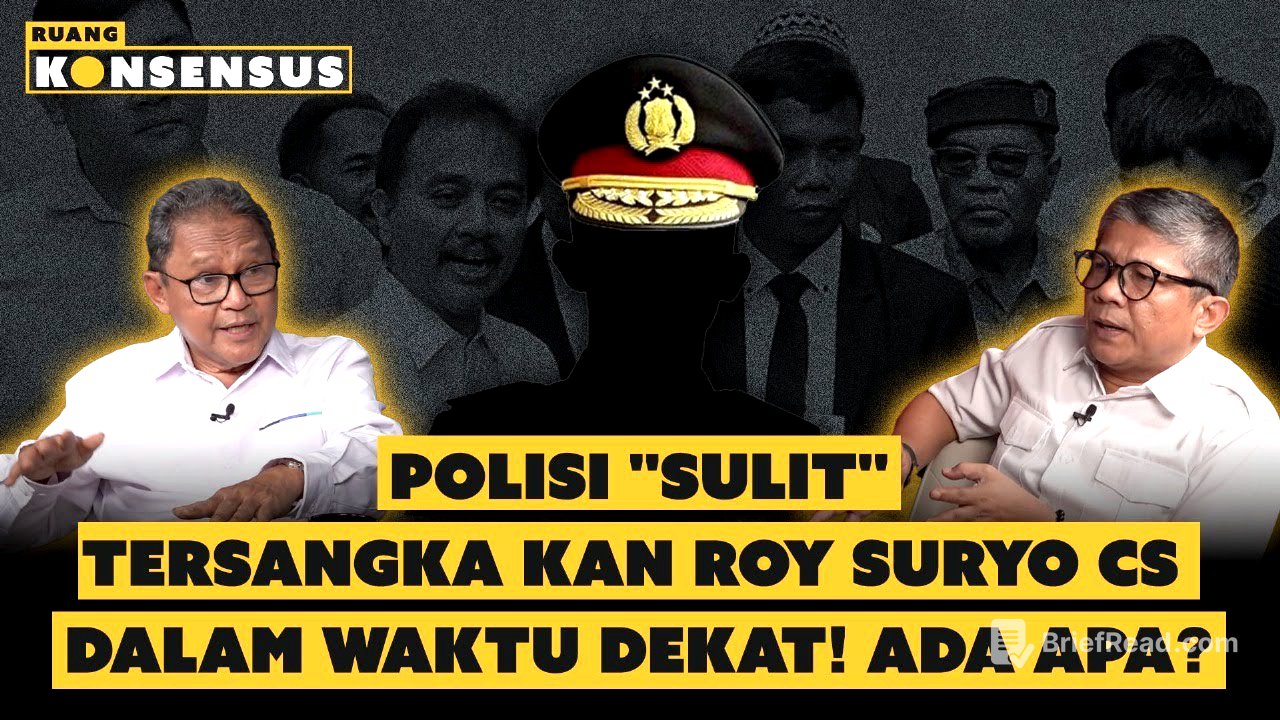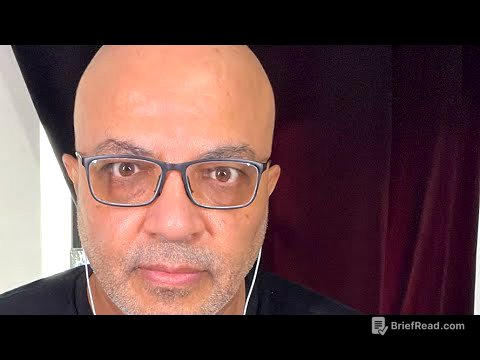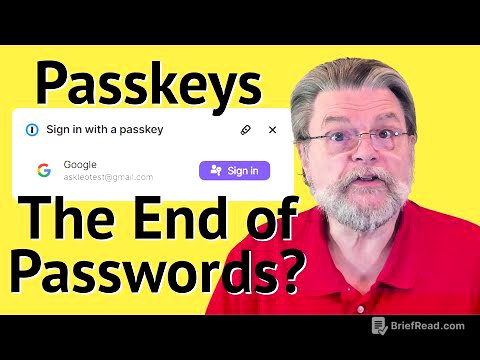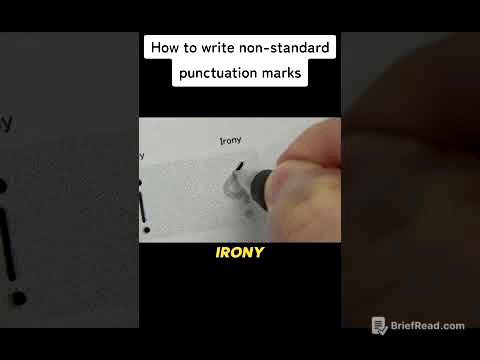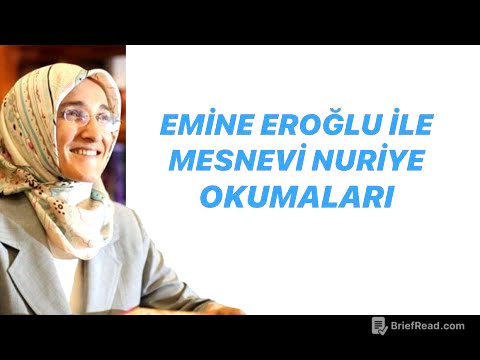TLDR;
This YouTube video features a discussion about the ongoing investigation into the alleged fake diploma and defamation case against President Jokowi. The speakers express concern over the perceived hesitancy of the police in naming suspects, despite what they believe is ample evidence. They explore potential reasons for the delay, including political interference, fear of public reaction, and the influence of post-truth strategies. The conversation also touches on the broader implications for Indonesian law enforcement and the potential for social unrest if the case is not resolved swiftly and transparently.
- The police's perceived hesitancy in naming suspects in the Jokowi diploma case.
- Potential political interference and the influence of post-truth strategies.
- The risk of social unrest if the case is not resolved swiftly and transparently.
Intro [0:00]
The host introduces Retired Police Inspector General Aryanto Sutadi, an expert advisor to the Chief of Police, to discuss the latest updates on the fake diploma and defamation case against President Jokowi. They aim to clarify whether the 12 reported individuals will become suspects and whether they will be detained.
Roy Suryo's Request for Postponement [2:21]
The discussion begins with Roy Suryo's request to postpone the summons, citing that investigators did not present Jokowi's original diploma during a special case title. Aryanto responds by criticizing Roy Suryo's approach, stating that they filed the lawsuit believing they were correct and had the freedom to express their opinion. Aryanto explains that in a country of law, accusations must be supported by strong initial evidence, which Roy Suryo's side failed to provide. He points out that they accused Jokowi of using a fake diploma without first finding the suspected fake diploma and comparing it with others.
Legal Process and Metro Police Investigation [6:08]
Aryanto explains that Roy Suryo had previously reported the case to the Headquarters two years prior, but it was not served due to insufficient initial evidence. Responding to the report at Metro, Roy became the reported party. The Metro Police investigated, and Aryanto believes their step in raising the status to investigation is correct and in accordance with the existing SOP. He criticizes the request to repeat the case title as a delaying tactic, suggesting they are pretending not to know the rules.
Police Hesitancy and Investigation Progress [10:11]
The host suggests that the police are not being firm, possibly due to fear or waiting for orders from superiors. Aryanto notes that the investigation has been ongoing for a month, with 49 people examined and seven expert witnesses consulted, leading to the collection of complete evidence. He expresses surprise that suspects have not been named yet, as he believes the investigation should have progressed more quickly.
Expert Witnesses and Hate Speech [13:22]
Aryanto criticizes the delay in determining the suspects, stating that it was clear from the previous investigation who the likely suspects were, including Roy Suryo, Rismon, Dr. E, and EG Sujana. He points out that these individuals have been vulgar and have belittled the police. He highlights that hate speech is evident, especially with Roy Suryo's repeated insults, which should be recorded and used as evidence.
Reported Parties and New Suspects [16:33]
Aryanto clarifies that being a reported person does not necessarily mean being a suspect. He explains that the initial evidence submitted by the reporter had not been examined by expert witnesses. Now that expert witnesses have been questioned, it is more evident who deserves to be suspected. He also mentions that new suspects could emerge from digital footprints.
BO1 and Investigation Timeline [17:37]
When asked about "BO1" (video one), Aryanto says it will take a long time because raising an investigation or determining a suspect is still ongoing. He hopes the program will be pushed so it doesn't take too long, aiming for early August or the end of the week. He emphasizes the investigator's obligation to complete the files until they reach the prosecutor.
Doubts and Fears of Investigators [18:20]
The host notes that even Aryanto cannot predict the outcome, despite clear evidence and witness testimonies. He suggests that investigators at the Metro Police seem afraid, worried, unsure, or waiting for orders from their superiors. Aryanto acknowledges the possibility of doubt among investigators, fearing that their files might be rejected by the prosecutor or judge.
Political Dimensions and Public Perception [20:09]
Aryanto states that the police often face not only this case, but the image out there that was conveyed by the people behind what he used to say there is no invincible hand. He says that the longer the police process this, the more they have the stage, they have time to create chaos in this country. He emphasizes that the case is not purely legal but has strong political content.
Jokowi's Sympathizers and Potential Unrest [20:58]
The host expresses concern that Jokowi's sympathizers are holding back and might surround the Metro Police Headquarters to demand justice. He suggests that investigators are only afraid of slanderous groups and that the public believes the police no longer have authority. Aryanto acknowledges the public's perception and the potential for social unrest if the case is not resolved.
Constitutional Court Decision and Social Media Commotion [22:48]
Aryanto suggests that the investigator's doubt in determining the case is due to the Constitutional Court's decision, which caused a commotion on social media. He clarifies that the issue is not just on social media but is real in the field. He suggests that investigators should not worry about the Constitutional Court's decision, as the proof is in the field, not just on social media.
Hate Speech and Social Division [23:09]
Aryanto believes that the hate speech has been causing division, not only on social media but also in social problems. He warns that the peace has been disturbed, and this is what the judges should use later. He emphasizes that the hate speech has already borne fruit in the field.
Jokowi's Statement and Political Agenda [34:27]
The host mentions Jokowi's statement suspecting a major agenda carried out by a prominent figure, suggesting that this is a political case related to 2029. Aryanto responds that this should be shown to the public, legal observers, and judges. He emphasizes that the commotion has entered society, disturbing the peace.
Police Chief's Role and Conflict Theory [39:18]
The host questions what Aryanto, as an expert advisor to the Chief of Police, can do. Aryanto states that he advises investigators to be quick and tells his superiors that this is a politically charged case. He warns that the longer the case is handled, the more the police will give wind to the property, and chaos will occur. He explains that in conflict theory, the first thing to do is localize the conflict before it erupts.
Public Perception and Judicial Process [41:46]
Aryanto emphasizes that the public doesn't really care about the judge's verdict but wants to know that there are procedures in place and that the trial process will soon begin. He believes that the public is angry because they don't know what the dialogue is like in the investigation room. He suggests that to stop their echoes in the field, this should be done quickly, and this process should also be somewhat judicial.
Post-Truth Era and Investigator Neutrality [44:35]
The discussion shifts to the post-truth era and its impact on investigators. Aryanto emphasizes that investigators must be neutral and professional, not related to political interests. He acknowledges that investigators must be careful but should not be misled, especially when there is already too much evidence.
Post-Truth Strategy and Future Trends [45:53]
The host suggests that Roy Suryo and his friends are using a post-truth strategy to force something wrong to become ingrained through repetition. Aryanto agrees that the post-truth era can have a negative impact on the professional attitude of investigators. He acknowledges that investigators are faced with various opinions every day, which is dangerous.
KM 50 Case and Leadership Firmness [50:40]
Aryanto compares the current situation to the [ __ ] case and KM 50, where leadership firmness led to quick resolutions. He suggests that the key to completing the poster was because Mr. Jokowi ordered that it not be covered up. He questions whether the defamation case is also waiting for President Prabowo's word to be resolved immediately without causing a commotion.
Presumption of Innocence and Message to Investigators [54:41]
The host emphasizes the need to be firm and not wait for President Prabowo's order. He urges investigators to open everything and suspect those who deserve to be suspected. He stresses that the public just wants to know that there are procedures in place and that the trial process will soon begin.
Aryanto's Regret and Pessimistic Tone [56:41]
Aryanto expresses regret if the situation is not stopped quickly, as the evidence is quite strong. He clarifies that he is not being forced to defend Mr. Jokowi. He acknowledges that he was a victim in the post-structural era when he was shouted at by Ahmad Kozinudin. He concludes with a pessimistic tone, stating that there will likely be no suspect deposition this week.
